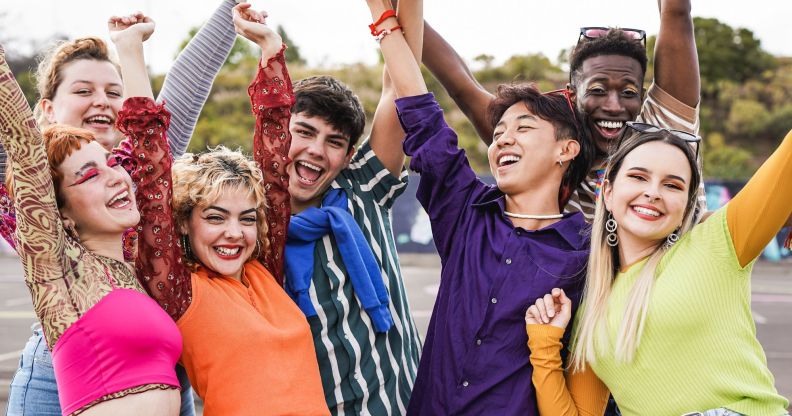More young people than ever choose ‘queer’ over labels such as ‘gay’ or ‘lesbian’

More young people than ever are choosing ‘queer’ over labels such as ‘gay’ or ‘lesbian’ (Getty Images)
Gen Z are now increasingly rejecting binary labels like “gay” and “lesbian” in favour of more fluid labels like “queer”, a number of new studies have found.
A study by Business Insider and YouGov found that 5 per cent of Gen Z (aged between 18 and 26) identified as queer, compared to 1 per cent of Gen X and Millennials.
More people from the Gen Z category are identifying as bisexual compared to other generations too, with 13 per cent of Gen Z calling themselves bisexual, compared to 7 per cent of Millennials and 4 per cent of Gen X.
Only 1 per cent of Baby Boomers identified as bisexual, and less than 1 per cent of the Boomer generation said they were queer.
This follows several studies, including the UK census, which has found that more young people are out as LGBTQ+ than any other generation, with 6.91 per cent of young people in the UK identifying as lesbian, gay, or bisexual.
In interviews with Business Insider, several Gen Zers explained why they prefer to use more fluid labels like queer, with one interviewee saying he rejected several labels as they came with expectations and assumptions about how he should behave.
Frederic Chen, a 22-year-old content creator in Los Angeles who identifies as queer, told the outlet: “I kept seeing videos that were like, ‘Lesbians do this, gays do this, and bisexuals do this.’
“It looked like sexuality was being commodified, and people were assigning aesthetics to certain sexualities.”
Phillip Hammack, a professor of psychology and the director of the Sexual and Gender Diversity Laboratory at the University of California, Santa Cruz, told Business Insider: “We don’t really know from a social-science perspective if there really are more bisexual people, for example, in today’s generation.
“It could be that more people, in general, are more comfortable being out and open. I suspect actually the latter.”
“Particularly among members of Generation Z, there’s this opening up of queerness… It’s inclusive of basically anyone who is challenging cisgender, heterosexual, or heteronormative thinking.”
Once used as a slur against the LGBTQ+ community, several groups are still fighting against the word “queer”, with anti-trans groups like LGB Alliance calling the term “derogatory”, and claiming the acronym LGBTQ+ is like “alphabet soup”. Others, however, have claimed the word has been reclaimed by activists since the 1970s, and it’s no different to the word “gay”, which has also been used as a slur.
In a debate on the word “queer” hosted by PinkNews, one person in their 50s wrote: “When I was growing up it meant a whole different thing.
“Going out and regularly getting beaten up as queer bashing has stayed in my mind for years as well as losing a job because I was queer… Some will never lose this meaning of the word while others will embrace it.”
Another embraced the term as “inclusive”, saying: “I love it. Saying I am queer is a lot easier than explaining my various labels and it’s really inclusive.”

